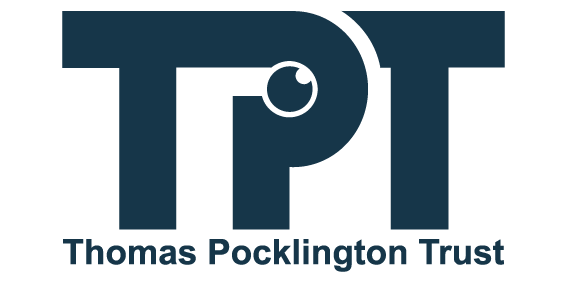As a blind or partially sighted student, making sure you have all the right support and equipment for your university studies is crucial for enabling you to thrive in this exciting stage of your education. That is where Disabled Students’ Allowance (DSA) can make all the difference.
DSA is a grant which provides funding for the support and specialist equipment you need to overcome barriers relating to your vision impairment when accessing your studies. It is a vital piece of the puzzle, so we have created this guide to walk you through everything you need to know!
This guide has been updated to include changes to the DSA system which were introduced on 26 February 2024.
“As a blind university student, DSA has helped me greatly with accessing and receiving the best help that I can get within university and for me to know that I am getting the best opportunity to succeed within my chosen field” – Rainbow Mbuangi, university graduate.
What DSA covers
- Specialist equipment and software – screen reading/magnification software, braille displays/notetakers, dictaphone, electronic magnifiers/scanners and much more.
- Non-Medical Help (NMH) e.g. supporting mobility and orientation around campus.
- Extra travel costs e.g. taxi fares to and from university.
- Other disability-related costs of studying.
What DSA doesn’t cover
- Daily support towards personal assistance.
- The cost of adapted accommodation needs in university housing or housing provided by an agent to the university. However, universities are required to make reasonable adjustments so disabled students are not at a disadvantage compared with others.
Will I be eligible?
To be eligible for DSA you must have a long-term condition or disability that impacts your ability to study. A vision impairment meets this requirement. You will need to provide evidence of your vision impairment; this is usually through a Certificate of Visual Impairment or a letter from a medical professional.
How much do I have to pay?
DSA is a non-means tested grant, so the amount of funding you receive does not depend on how much money you have and you will not have to pay anything back. However, you will need to pay the first £200 towards a new computer, if one is supplied as part of your DSA support package. The Government has stated this is the minimum amount any student will incur when buying a computer.
How do I apply?
If you are applying for student finance you can apply online, or you can request a paper application form. The form can take a while to complete, so make sure that you set aside some dedicated time to work on it. If applying online, you should be able to save your application as you go, allowing you to take a break and return later.
Your DSA application (England only)
You should apply directly to Student Finance England for DSA. This can be done at the same time you are making your UCAS application. You will need to supply evidence of your disability with your application. This might be a letter from your doctor or vision impairment specialist. Student Finance England, a Disability Officer or University Student Support will be able to advise you on the evidence you need to submit.
You can find out more about applying for DSA and download an application form at the GOV.UK website.
Top tip
For large print, braille or audio versions of the application form, contact the Student Loans Company by calling 0141 243 3686 or email brailleandlargefonts@slc.co.uk.
Check out this helpful guide from UCAS which covers DSA and how to apply in different regions of the UK. You can also find out more information on how to apply for your DSA on the Disability Rights UK website.
When should I apply?
You should apply as soon as possible. The Student Loans Company state you do not need to have been accepted to a university before applying. You can simply add the university you are hoping to attend, and should this change in the future, you can simply amend your university selection during the DSA process.
“Make sure you have had some type of contact with the Disabled Students’ Allowance team by the spring before you go to university, as this will ensure that they are aware and can set everything up before you start university” – Rainbow Mbuangi.
I am a post graduate student; can I still apply for DSA?
Yes, you can. There is a separate scheme for postgraduate students, but the application process is the same.
I have applied – what next?
If you have applied for DSA on or after 26 February 2024, you will be contacted by one of two providers Contact Associates (Capita) or StudyTech.
Who you are contacted by will depend on which region you live in at the time that you are confirmed as eligible for DSA.
When you qualify for DSA, you will receive a DSA1 letter from the Student Loans Company, who will introduce you to either Contact Associates or StudyTech. They will be responsible for the rest of your DSA journey (apart from Non-Medical Support). This includes your needs assessment and providing any technology or training that you are awarded.
What if I applied before 26 February 2024?
If you are already in receipt of DSA or made your application before 26 February 2024, you are still entitled to full DSA support. If you are looking to be reassessed or want to check the status of your application, then there may be some changes to how your application is processed. If so, we encourage you to get in contact with our Student Support Service.
If you would like to discuss your DSA application or have any questions, then please contact our helpful Student Support Service; studentsupport@pocklington.org.uk.
We cover DSA assessments in the next section, so keep reading…



